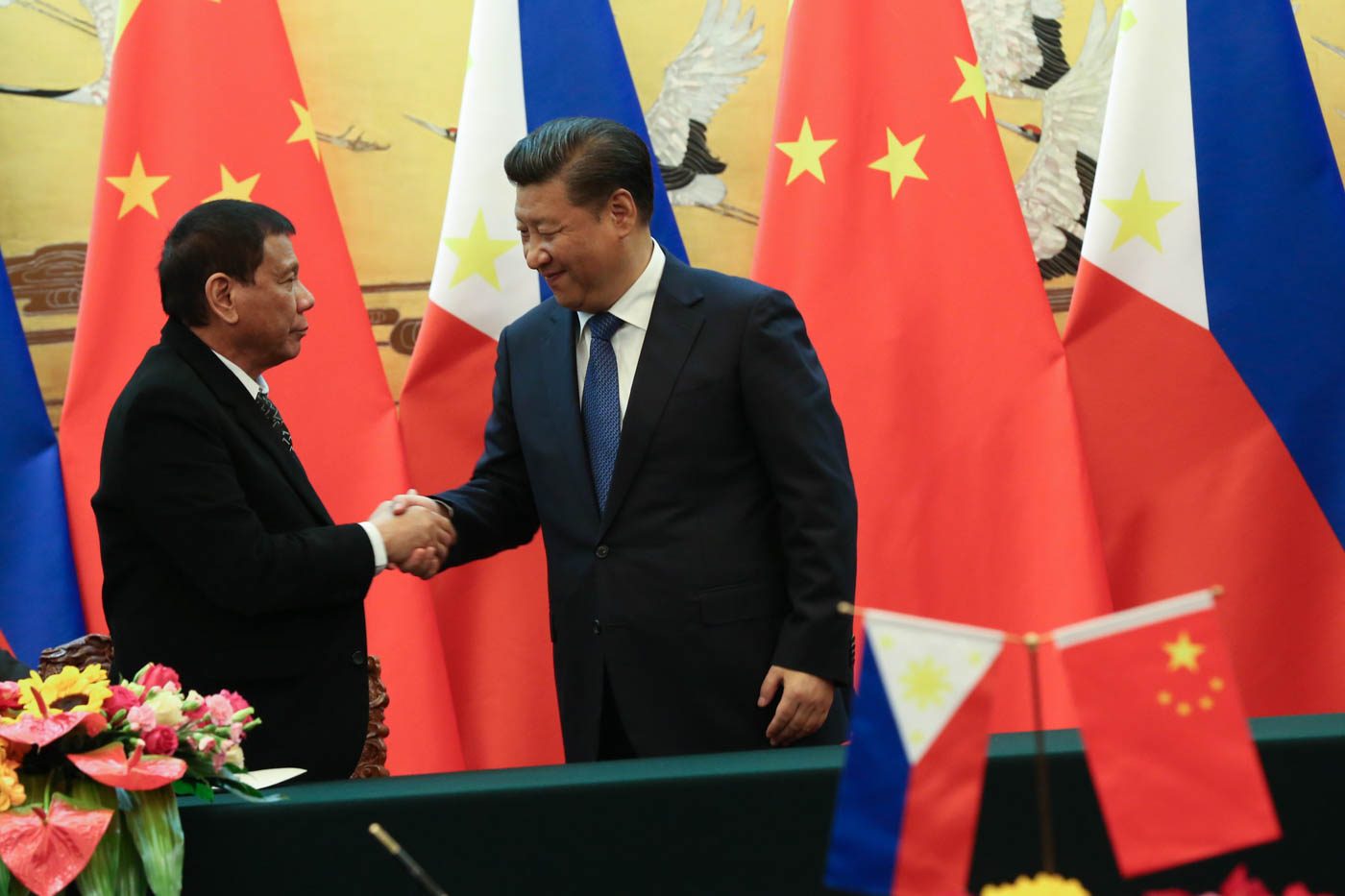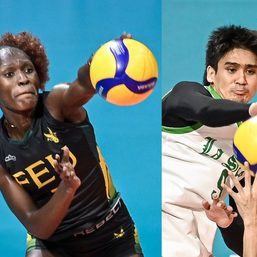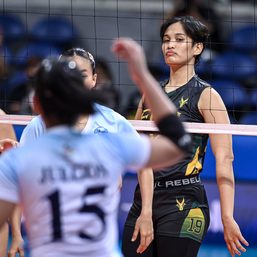SUMMARY
This is AI generated summarization, which may have errors. For context, always refer to the full article.

BEIJING, China – Not even a year into his presidency, President Rodrigo Duterte will have visited China’s capital twice when he lands in Beijing on Saturday, May 13, to attend the Belt and Road Forum on International Cooperation.
Duterte will join over 20 other leaders to take part in China’s premier diplomatic and economic event of the year. The forum, to take place from May 14 to 15, will be hosted by Chinese President Xi Jinping himself.
Experts on Chinese foreign policy say Duterte’s attendance in the summit is a huge statement packed with subtle meaning and symbolism about where Philippine-China ties are heading.
To fully make sense of this, one must first understand the significance of the Belt and Road Forum, the first international summit where China will elaborate on its ambitious Belt and Road Initiative (BRI).
The BRI is China’s goal to connect economies of various countries with its own large economy through the revival of the ancient Silk Road trade route.
China aims to do this by helping other countries build infrastructure like roads, railways, bridges, and ports. The BRI has two components – the Silk Road Economic Belt and the 21st Century Maritime Silk Road.
This “belt” and “road” will connect around 100 countries, both landlocked and archipelagic, spanning the continents of Asia, Europe, and Africa, to China. The hope is the belt and road will make it easier for goods and investments to flow into these countries from China and vice versa.
The BRI is China’s pitch for credibility as a major power that can make a contribution to the world order, said analysts.
“For some time, China has also been sort of positioning itself to be in the same league as the other big powers, to be at the rule-making table, to be a provider of global public goods,” said Dr Aileen Baviera, a professor at the Asian Center of the University of the Philippines.
Whereas in the past China was criticized for being “mercantilistic” or being out for its own interest only, the Belt and Road Forum aims to highlight how the BRI can help other countries, especially developing countries, while at the same time boosting China’s economy.
The BRI is also about projecting China’s growing global influence which the Chinese believe should come with its newfound affluence.
“Many Chinese feel that its influence is not commensurate with their capabilities and the power they already have. So in a way, China feels entitled because now they’re fairly rich,” said Baviera.
Some analysts pointed out that the BRI puts China in a perfect position to project economic influence, especially given the perceived waning power of the United States after President Donald Trump showed a penchant for protectionist policies.
“China feels it’s still pretty much a US-dominated world. The rules are made by the West. It feels it deserves this new role and the Belt and Road Initiative is all about claiming it,” said Baviera.
‘Hardest nut to crack’
Duterte’s attendance in the summit is affirmation of his support for China’s new positioning as a global power.
While the attendance of all leaders adds more prestige to the summit, Duterte’s presence is special because it shows that the Philippines’ is back in China’s fold, at least, economically.
“For China, the Philippines was one of the hardest nuts to crack…The Philippines was somehow outside the ambit of China’s economic influence,” said Baviera.
During the administration of Benigno Aquino III, economic cooperation between the Philippines and China remained low compared to China’s dealings with the country’s Southeast Asian neighbors.
Aquino, hesitant to enter China-led initiatives, waited until the last minute to approve the Philippines’ ratification of the Asian Infrastructure Investment Bank, a funding source for the BRI.
China slapped a ban on banana and pineapple exports, a ban that was lifted only after Duterte’s state visit to China last October 2016.
Duterte’s presence in the summit affirms that any hesitation the Philippines had about economic cooperation with China is now gone.
“If President Duterte comes, that’s saying that the Philippines has finally come around. ‘The hardest nut to crack, we have finally cracked it,’” said Baviera.
Put pressure on China
But Duterte’s participation in the forum is also a signal to China that the Philippines will hold Beijing to its word.
True enough, Duterte and Xi are set to hold a bilateral meeting and a restricted meeting on the sidelines of the forum to discuss, among other things, developments in the deals signed during the Philippine president’s visit to Beijing last year.
During the October state visit, 13 government-to-government agreements and $24 billion (P1.16 trillion) worth of deals between Philippine and Chinese companies were signed.
According to his economic managers, China has signified interest in partly funding, through loans and grants, critical infrastructure projects like railways and bridges.
If these deals push through, they will likely be branded as part of the BRI.
Thus, Duterte’s attendance at the summit is a “high profile act” that puts pressure on China to fulfill its promises, said Ateneo de Manila University Chinese Studies lecturer Lucio Pitlo III.
“China would be encouraged, if not put under pressure, to really make sure that all of the deals, all of the transactions that were agreed and signed post-state visit up until now will be implemented,” Pitlo added.
It also sends a message to China and the world of the line Duterte wants to draw between economic ties and the South China Sea (West Philippine Sea) dispute.
“I think it’s a recognition that the BRI has nothing to do with politics, that BRI is an economic initiative, economic agenda of China and to the extent the PH can benefit from it, [Duterte] will attend it,” said Pitlo.
More than 50 documents of cooperation for infrastructure projects are expected to be signed during the two-day forum, according to Chinese officials.
With Duterte at its helm, the Philippines expects to reap benefits from its closer ties to the emerging world power that is China. – Rappler.com
Add a comment
How does this make you feel?





There are no comments yet. Add your comment to start the conversation.